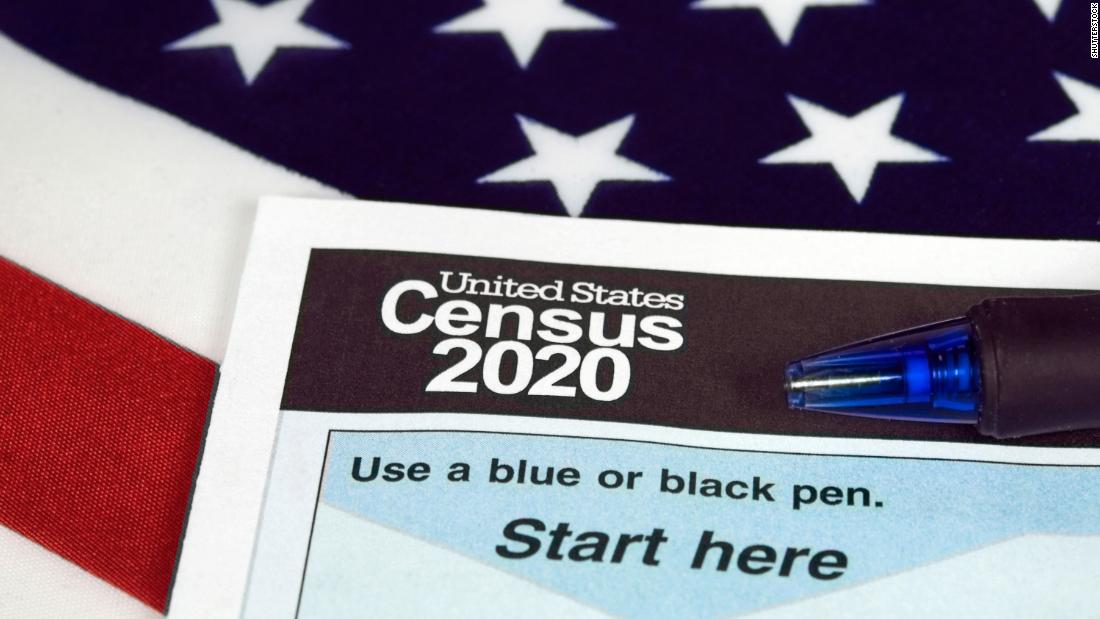[ad_1]
“Under the Supreme Court’s decision, you can’t simply give a reason, you must have a record that shows that the reason is rational,” said John Yang of Asian Americans Advancing Justice, one of the groups suing the government in a Maryland federal court.
Here are some of the reasons that have been offered for asking the controversial question:
Enforcement of the Voting Rights Act
Ross’ March 2018 announcement that the question would be asked cited the Justice Department’s need for more detailed data on who was eligible to vote.
“I have determined that reinstatement of a citizenship question on the 2020 decennial census is necessary to provide complete and accurate data in response to the DOJ request,” he wrote.
The Justice Department had told Ross in December 2017 it needed the question and a localized production of “citizen voting-age population data” to probe any legislative districts that may be drawn to disenfranchise minority voters.
“We are responding solely to the Department of Justice’s request, not to any campaign request,” Ross later testified to Congress, one of several times he was asked about the origins of the question.
But when the issue landed in court, internal documents began to show a more complicated backstory. Federal judges in three separate trials found Ross actually had a different, unspecified rationale in mind. And New York congresswoman Grace Meng, who asked Ross about the question’s origins, said she felt “lied to.”
White House and allies wanted it
About two months after taking office in May 2017, Ross emailed an aide: “I am mystified why nothing have (sic) been done in response to my months old request that we include the citizenship question. Why not?”
The Justice Department officially requested the question be added in December 2017. The secretary and his aides personally asked then-Attorney General Jeff Sessions and his aides to make the request, according to court filings.
Ross ultimately wrote an additional memo in June 2018 explaining how that was the case.
“Soon after my appointment as Secretary of Commerce,” he wrote, “I began considering various fundamental issues regarding the upcoming 2020 Census, including funding and content. Part of these considerations included whether to reinstate a citizenship question, which other senior Administration officials had previously raised.”
Those officials included Steve Bannon, then the President’s chief strategist, who connected Ross with Kris Kobach, the then Kansas secretary of state and a leader of the now-defunct White House panel investigating unfounded allegations of voter fraud.
In the summer of 2017, Kobach shared in an email to Ross concerns that the “lack of (citizenship) information impairs the federal government’s ability to do a number of things accurately.”
“It also leads to the problem, he continued, “that aliens who do not actually ‘reside’ in the United States are still counted for congressional apportionment purposes.”
Excluding non-citizens when congressional districts are drawn
The President appeared to refer to that concern when asked Friday why he wanted the question included.
“Well, you need it for many reasons,” Trump said. “Number one, you need it for Congress. You need it for Congress, for districting.”
Districts are typically drawn based on total population, so that each member of Congress represents a similar number of total people, regardless of whether that person can cast a ballot, or can’t — the case for children, non-citizens, and some felons, for example. The data produced by a citizenship question could lead to states drawing representative districts based on eligible voters instead.
Challengers have made that part of their lawsuit, claiming the question was drawn up to be discriminatory. They pointed to a recently-found 2015 study that stipulated drawing districts based on voting-age citizen adults would be “advantageous to Republicans and Non-Hispanic Whites.”
They say there is evidence the now-deceased Republican consultant who authored the study was connected to the crafting of Ross’ question, and that a federal judge in Maryland on Friday allowed them to request documents and testimony from the government to explore that allegation.
Trump believes the question is natural on a census
The President has offered another, more general explanation for the question: It’s the sort of thing that is asked on a census.
“We’re spending $15 to $20 billion on a census. We’re doing everything. We’re finding out everything about everybody,” he said on Friday. “Think of it: $15 to $20 billion and you’re not allowed to ask them, ‘Are you a citizen?’ “
Supporters note the question is asked by other countries on their censuses, and recommended by the United Nations. Questions about citizenship also appear on a more detailed Census Bureau survey that goes to a small fraction of the US population, and citizenship was once an inquiry on the main census.
Constitutional attorney Thomas Wolf of the Brennan Center, which supports lawsuits against the citizenship question, said it was removed from the census when officials realized it and other questions were making the survey less effective.
“That kind of argument is no different from the President saying I want it because I want it. That is not a reason,” Wolf said. “We need reasons other than just I want it.”
[ad_2]
Source link



